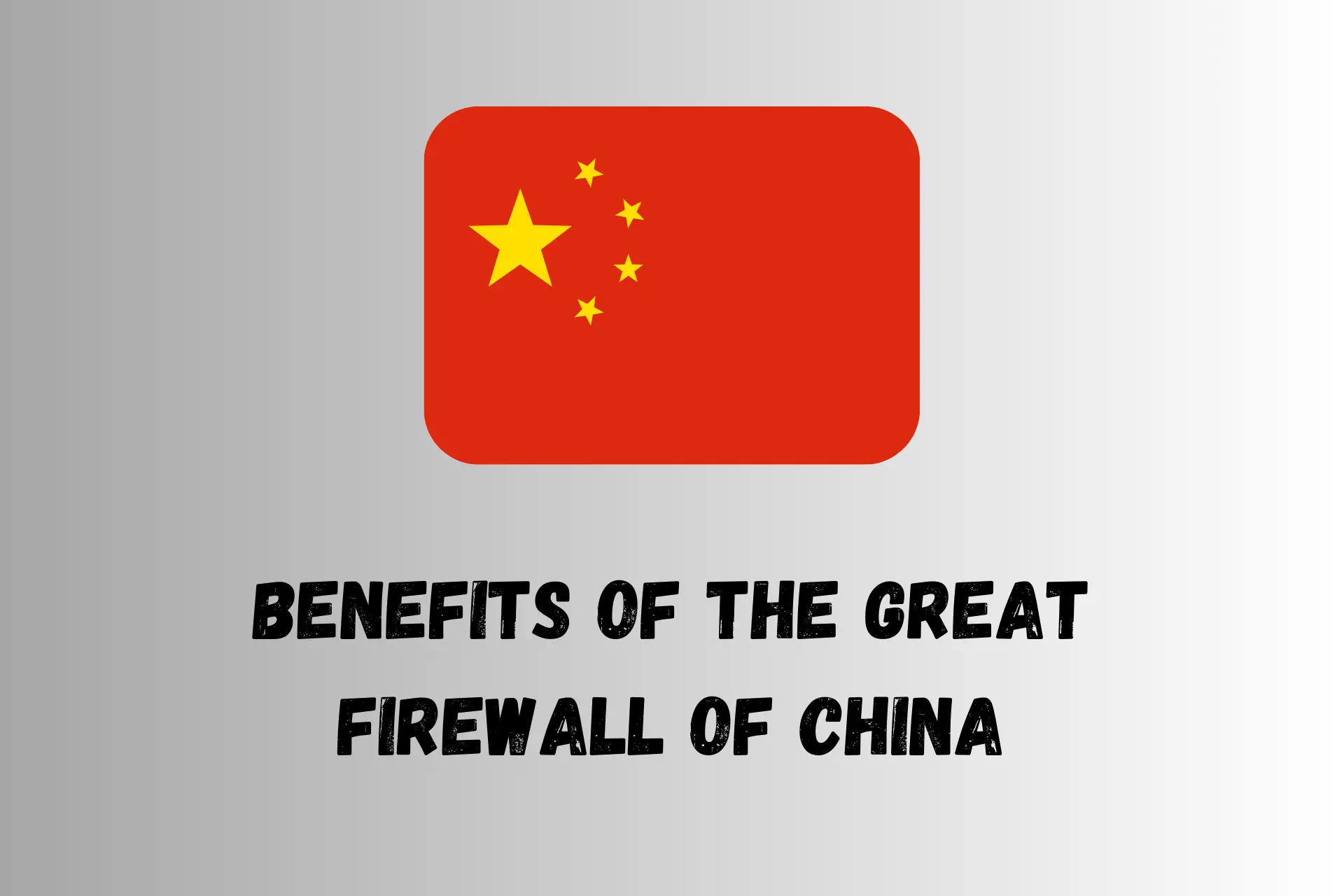The Benefits of the Great Firewall of China [Need To Know]
5 min. read
Updated on
Read our disclosure page to find out how can you help VPNCentral sustain the editorial team Read more

The Great Firewall of China is a term used to describe the Chinese government’s extensive internet censorship and surveillance system, but besides being restrictive, it also has its benefits.
The goal of this sophisticated technological and legislative initiative is to restrict and control the flow of information on the Internet within China.
Though this would appear to most people as a form of dictatorship, could there be a silver lining to having this firewall?
Let’s find out!
What are the benefits of the Great Firewall of China?
Irrespective of the country, placing restrictions and control on the internet doesn’t sound like anyone’s idea of fun.
Rather, the internet is where people have fun and access information freely. So how could restricting it be beneficial?
1. Censorship of harmful content ⛔
As the world’s most populated country, it would hardly come as a surprise to you that China is one of the largest markets for internet pornography and gambling.
However, the government considers this type of content harmful to society. It believes it promotes moral and cultural decay and threatens social order.
So for over 20 years, the Chinese government has been running a highly publicized campaign against Internet pornography.
In 2009, Chinese police arrested 5,394 suspects and conducted 4,186 investigations in a crackdown on Internet pornography.
Gambling is also a potential threat to social stability and public safety. The government believes gambling can lead to addiction, financial ruin, and social problems like crime and corruption.
With the Firewall, China can heavily regulate and censor all forms of gambling to control its negative impact on society.
So, you can argue that these restrictions can have a positive impact, especially considering vulnerable internet users, including children.
2. Protection against cyber attacks ?️
Another benefit of the Great Firewall of China is the protection against cyber attacks.
The firewall blocks access to foreign websites and services that threaten Chinese national security or public order.
A typical example is the 2016 Mirai botnet malware attack, which compromised Internet of Things (IoT) devices like smart sound systems or surveillance cameras.
The attackers used it to launch a large-scale Distributed Denial of Service (DDoS) attack against Dyn, a Domain Name Service (DNS) company.
And while the attack disrupted internet services in many parts of the world, the Great Firewall of China prevented it from affecting Chinese websites and services.
After that, in May 2017, the Firewall also minimized the effect of the WannaCry ransomware attack on China.
The attack affected thousands of computers in over 150 countries worldwide and 40,000+ institutions in China.
However, the Firewall helped mitigate the spread of the Mirai botnet malware in China.
Without it, even more businesses and Institutions.
3. Promotion of Chinese businesses ?️
Limiting access to foreign market competitors in favor of local business is another big benefit of the Great Firewall of China.
It has created a walled garden of Chinese online content, allowing domestic businesses to thrive in a more protected environment.
Since Chinese companies can operate both inside and outside China, they automatically gain a huge advantage over international competitors.
This has led China to produce some of the world’s most successful tech companies, including Alibaba, Tencent, Baidu, and Huawei.
Additionally, the Great Firewall of China provides Chinese consumers with easier access to domestic products and services.
Such items usually get higher visibility in search engine results and online marketplaces.
The result has been a more level playing field for Chinese companies to compete and succeed in the global market.
4. Protection against hatred and racism ✋
One of the benefits of the Great Firewall of China is to block information that could be harmful or disruptive.
This includes content that incites hatred or promotes racism against the people of China.
By limiting access to this content, the firewall can prevent the spread of discriminatory attitudes that can harm people.
For instance, the firewall blocks access to websites and social media platforms that promote hate speech against ethnic minorities in China or glorify violence and terrorism.
This limitation helps prevent the spread of harmful and dangerous ideas that could jeopardize public safety.
Furthermore, it protects against foreign influences that may undermine the country’s unity and stability.
There is limited access to foreign news and information sources that may promote anti-Chinese sentiment or spread false information.
And although the government might seem to have ulterior motives, there is no denying that the firewall has protected China against racism and hatred.
Related reads:
Summary
So there you have it: some of the benefits of the Great Firewall of China.
While these may come at the expense of individual freedom of expression, the Chinese government sees them as necessary.
Some may argue that the benefits do not justify the extensive internet censorship. Although this could be true, it’s also important to consider the cultural and societal context of China.
The country values social harmony and order.
That said, Chinese citizens who value individual freedom can get the best of both. If you use a VPN, you can bypass these restrictions.
Only bear in mind that the government regulates the use of VPNs. And there are punishments for using unapproved VPNs in China.
Additionally, the Chinese government usually restricts a lot of VPNs in China. Yet, VPNs such as NordVPN still work despite the restrictions.







User forum
0 messages